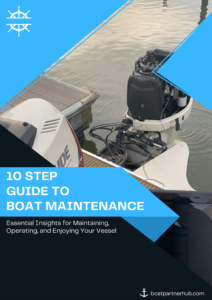Blog
Marine Coolers Review

Chill Out in Style: A Comprehensive Review of Marine Coolers for Refreshing Boating Adventures
Having a reliable marine cooler on board is essential for keeping your beverages and food fresh and chilled during your boating adventures. Marine coolers are designed to withstand the harsh marine environment and maintain cold temperatures even under the scorching sun. With a wide variety of marine coolers available, choosing the right one can be overwhelming. In this comprehensive review, we will evaluate and compare different types of marine coolers, helping you make an informed decision to keep your provisions cool and refreshing on every boating trip.
1. Types of Marine Coolers
Marine coolers come in various types, each catering to specific boating needs:
- Hard-Sided Coolers: These sturdy coolers offer excellent insulation and durability. They are ideal for longer boating trips and can also serve as additional seating on deck.
- Soft-Sided Coolers: Lightweight and portable, soft-sided coolers are convenient for day trips and picnics. While they may not retain ice as long as hard-sided coolers, they are more compact and easier to carry.
- Electric Coolers: Powered by a 12-volt DC power source, electric coolers are perfect for boats equipped with electrical systems. They can maintain cool temperatures without the need for ice.
2. Insulation and Ice Retention
One of the critical factors to consider is the cooler’s insulation and ice retention capabilities:
- Thick Insulation: Look for coolers with thick insulation, as it helps retain cold temperatures for an extended period.
- High-Quality Seals: Proper sealing prevents warm air from entering and cold air from escaping.
3. Size and Capacity
Choose a cooler size that suits your boating needs:
- Small Coolers: Ideal for day trips and short boating excursions.
- Medium Coolers: Offer a good balance between portability and storage capacity.
- Large Coolers: Suitable for extended trips and boating with a larger group.
4. Durability and Build
Marine coolers should be durable to withstand the rigors of boating:
- Rugged Construction: Opt for coolers made from robust materials that can withstand impacts and rough handling.
- UV-Resistant: UV-resistant coolers prevent sun damage and fading when exposed to the sun for extended periods.
5. Mobility and Carrying Options
Consider the cooler’s mobility and carrying options:
- Wheeled Coolers: Wheeled coolers are convenient for transporting heavy loads across the boat or to the beach.
- Comfortable Handles: Choose coolers with comfortable and ergonomic handles for easy carrying.
6. Drainage and Cleaning
Ensure the cooler has effective drainage and is easy to clean:
- Built-in Drainage: Look for coolers with a built-in drain plug for easy water removal.
- Easy-to-Clean Interior: Smooth and seamless interiors make cleaning hassle-free.
7. Additional Features
Some marine coolers come with extra features for added convenience:
- Cup Holders and Cutting Boards: Integrated cup holders and cutting boards offer practicality and functionality.
- Fish Ruler: A built-in fish ruler is handy for measuring your catch.
8. Brand Reputation and Customer Reviews
Consider the brand reputation and customer reviews to gauge the cooler’s performance and reliability.
Conclusion
A well-chosen marine cooler is an indispensable companion for your boating escapades, ensuring your refreshments remain cool and enjoyable. Determine your cooling needs, whether it’s for day trips or extended journeys, and consider factors like insulation, ice retention, size, durability, and mobility. With the right marine cooler, you can savor chilled drinks and fresh food as you explore the waters, creating cherished memories with family and friends onboard.
FAQs
- How long will a marine cooler retain ice? The ice retention period varies based on the cooler’s insulation and external conditions. High-quality coolers can retain ice for several days.
- Can I use regular coolers for boating? Regular coolers may not be as durable or effective in the marine environment. Marine coolers are designed to withstand harsh conditions and retain cold temperatures.
- Are electric coolers better than ice-based coolers? Electric coolers are a convenient option for boats with electrical systems, as they eliminate the need for ice. However, ice-based coolers can be more versatile for extended trips without power sources.
- Do soft-sided coolers retain ice as long as hard-sided coolers? Soft-sided coolers generally have less insulation than hard-sided coolers, resulting in shorter ice retention periods. They are best suited for shorter trips.
- Can I use marine coolers for other outdoor activities? Marine coolers are versatile and can be used for camping, fishing, and other outdoor activities that require cooling provisions.


